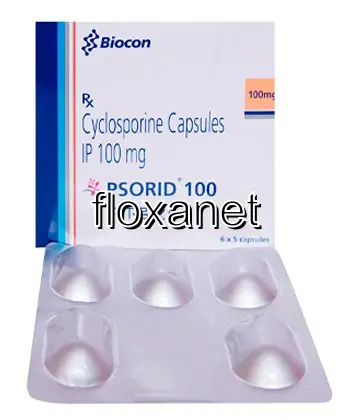| Package | Dosage | Price | Price per Dose | |
|---|---|---|---|---|
| Dosage: 25mg | ||||
| 60 pill | 25mg | NZD829.90 | NZD13.84 | |
| 30 pill | 25mg | NZD448.84 | NZD14.99 | |
| 20 pill | 25mg | NZD310.91 | NZD15.59 | |
| 10 pill | 25mg | NZD165.96 | NZD16.55 | |
| Dosage: 100mg | ||||
| 30 pill | 100mg | NZD911.73 | NZD30.39 | |
| 20 pill | 100mg | NZD624.18 | NZD31.23 | |
| 10 pill | 100mg | NZD350.65 | NZD35.07 | |

Cyclosporine Description
Overview of Cyclosporine
Cyclosporine is a potent immunosuppressant medication primarily used to prevent organ rejection in transplant patients. It is also prescribed to treat certain autoimmune conditions, such as psoriasis and rheumatoid arthritis. Derived from a soil fungus called *Tolypocladium inflatum*, this medication works by suppressing the activity of the immune system, thereby reducing the body's ability to attack transplanted organs or inflamed tissues.
Mechanism of Action
Cyclosporine acts by inhibiting the activity of calcineurin, a protein phosphatase involved in activating T-cells. T-cells are a type of white blood cell that plays a central role in immune responses. By blocking calcineurin, cyclosporine prevents the production of interleukin-2, a cytokine essential for T-cell proliferation. This suppression of immune activity helps to minimize the risk of organ rejection but also increases susceptibility to infections.
Usage and Dosage
The dosage of cyclosporine varies based on the condition being treated, the patient's weight, kidney function, and response to therapy. It is usually administered orally in capsule or liquid form, or intravenously in hospital settings. Physicians often start with a conservative dose and adjust it based on blood concentration levels, aiming to keep the drug within a therapeutic range. Monitoring is essential to balance efficacy with potential side effects and toxicity.
Benefits and Effectiveness
Cyclosporine is highly effective in preventing organ rejection when used appropriately. Its introduction revolutionized transplantation medicine by significantly increasing graft survival rates. Patients with autoimmune diseases have also reported symptom improvement with cyclosporine therapy. However, the effectiveness depends heavily on proper dosing and regular monitoring to prevent adverse effects. Many patients find remission of symptoms and improved quality of life during treatment.
Possible Side Effects
Despite its effectiveness, cyclosporine can cause a range of side effects. Common issues include hypertension, tremors, headaches, and gum hypertrophy. More serious potential problems include kidney damage, liver toxicity, increased risk of infections, and the development of certain cancers such as lymphoma. Long-term use requires careful medical supervision to detect and manage adverse effects early. Patients are advised to have regular blood tests to monitor organ function and drug levels.
Precautions and Considerations
Before starting cyclosporine, patients should inform their healthcare provider about any existing health conditions, allergies, or medications they are taking. Concomitant use of other drugs, particularly other immunosuppressants, antihypertensives, or nephrotoxic agents, may increase risks. Patients should avoid exposure to infections and report any unusual symptoms promptly. It is crucial to adhere to prescribed doses and attend all scheduled follow-up appointments for effective management.
Storage and Handling
Cyclosporine should be stored in a secure, dry place away from direct sunlight. Keep it out of reach of children and pets. Do not use the medication if the packaging is damaged or if the medication has expired. Proper storage ensures the medication maintains its potency and safety for the duration of treatment.
Conclusion
Cyclosporine remains a vital option for preventing organ rejection and managing autoimmune conditions. Its ability to suppress immune responses makes it highly effective, though careful monitoring is essential. Patients and healthcare providers must work closely to optimize its benefits while minimizing risks. When used responsibly, cyclosporine can significantly improve outcomes for those undergoing transplantation or battling autoimmune diseases.
